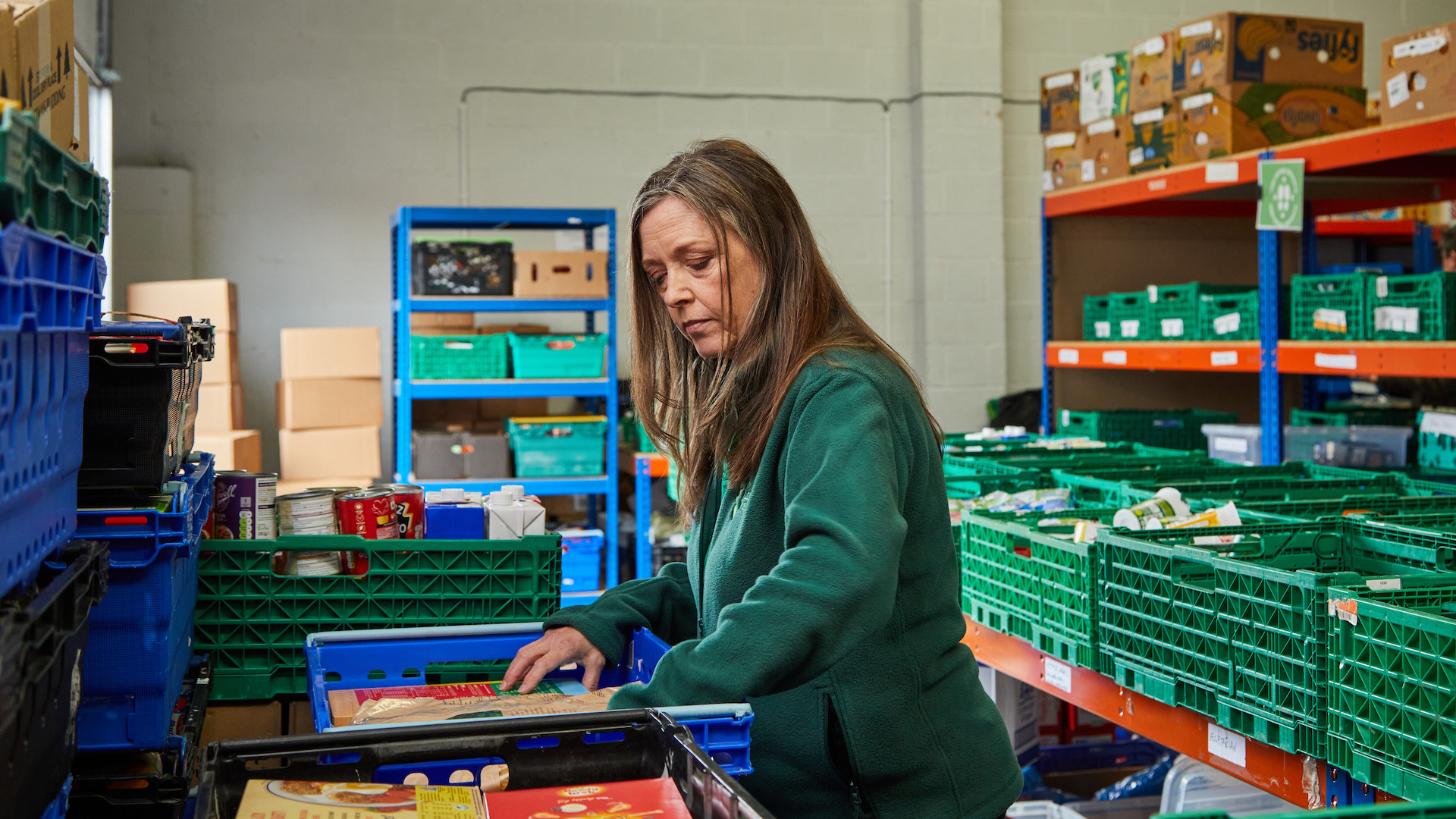The levels of need were particularly acute in winter, and December 2022 was the busiest month on record for the network, with a parcel being distributed by staff and volunteers across the country every eight seconds.
“It’s easy to think that we’ve had the pandemic and the cost of living crisis and this situation is created by those extraordinary events,” Barnard said. “But actually, we’ve had five years of steeply rising need and that is reflecting underlying weaknesses in our systems and, in particular, the inadequacy of the social security system.
“It can happen to any of us. Your partner gets sick, you have to stop working, or you lose your job, and that lifeline that you’re supposed to be able to turn to is just not sufficient to afford even the essentials, let alone some actual quality of life.”
The Trussell Trust has calculated that an individual needs £120 a week to afford the essentials, but universal credit claimants only get £85 per week at the standard rate. That means, every week, people face a shortfall of £35.
“People are left without any buffer,” Barnard added. “If the washing machine breaks down, or your child gets sick and you have to take them to medical appointments or anything like that, it just pulls you even further into this incredible level of hardship.”
This has a subsequent impact on people’s mental and physical health, putting further pressure on an NHS which is already at “breaking point”. The NHS Confederation warned last year that “there is a risk of devastating and long-lasting impacts on people’s health and wellbeing” as a result of the cost of living crisis.
Advertising helps fund Big Issue’s mission to end poverty
Poverty is linked with malnutrition, obesity, eating disorders and depression. This in turn impacts the demand for NHS services to treat the acute and chronic conditions caused by hunger and unhealthy diets. NHS spending on obesity is expected to rise to £9.7 billion per year by 2050 and malnutrition is estimated to cost the NHS £19.6bn per year.
“With the labour market, we want more people to be willing to come back to work,” Barnard said. “But people are lying awake all night because they’re worried, or they can’t afford to get to medical appointments or run medical equipment. This is not a situation that nurtures good health, which then enables people to get back to work and sustain it.”
Food banks were set up to provide short-term support to people in an emergency, rather than a lasting solution to hunger and poverty. More than three quarters of the UK believe they should not need to exist, according to the Trussell Trust.
The Trussell Trust is calling for an ‘essentials guarantee’ to ensure people have the money they need to survive. This would make it law that the basic rate of benefits will always cover the real cost of essentials, at the very least.
Barnard explained that an independent body would be needed to regularly review how much a shopping basket of goods costs and how that compares to benefits payments. More than 90 charities have backed calls for an essentials guarantee, but the conversations with politicians are still in their early stages.
Barnard said: “We need politicians from across the political spectrum to commit to this in the long-term and make an investment in our social security system.”
Advertising helps fund Big Issue’s mission to end poverty
Sabine Goodwin, coordinator of the Independent Food Aid Network added: “This staggering data must propel our government to take immediate cash-first, income-focused actions with the long term in mind.
“Trussell Trust figures represent the very tip of the iceberg when it comes to wider food insecurity. The UK’s poverty crisis is having a devastating impact on people’s physical and mental health to the detriment of society as a whole. This is an avoidable public health disaster.”
Get the latest news and insight into how the Big Issue magazine is made by signing up for the Inside Big Issue newsletter
Do you have a story to tell or opinions to share about this? We want to hear from you. Get in touch and tell us more.
The Big Issue’s #BigFutures campaign is calling for investment in decent and affordable housing, ending the low wage economy, and millions of green jobs. The last 10 years of austerity and cuts to public services have failed to deliver better living standards for people in this country. Sign the open letter and demand a better future.









